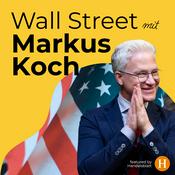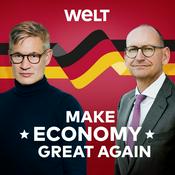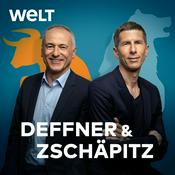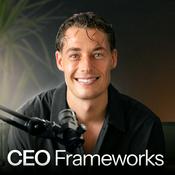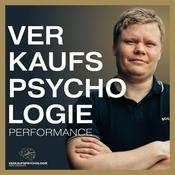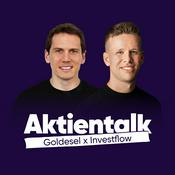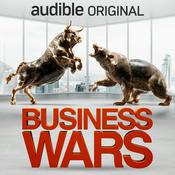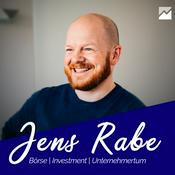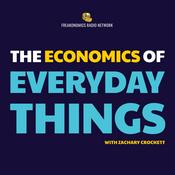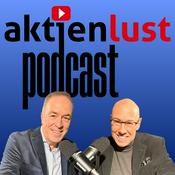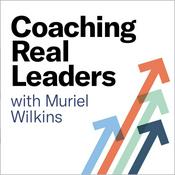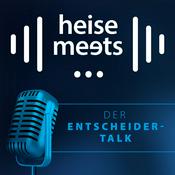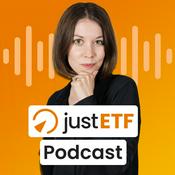Think Fast Talk Smart: Communication Techniques
Matt Abrahams, Think Fast Talk Smart

Neueste Episode
272 Episoden
- How to turn complexity into connection through clear communication.
Communication in high-stakes moments isn’t about saying more — it’s about connecting better. For Jonathan Berek and Phil Polakoff, the most effective communicators don’t rely on jargon or performance. They rely on empathy, listening, and stories that resonate.
Both longtime Stanford Medicine leaders, Berek and Polakoff have spent their careers translating complex, emotional, and often urgent health issues for patients, colleagues, and the public. And they’ve learned that the message only lands when it’s delivered at the right level, with the right intention. “Know your audience,” Berek says, describing the importance of “leveling” — communicating in language that meets people where they are, without talking down or over their heads.
For both Berek and Polakoff, listening is the foundation. “The two most important skills in communication are empathy and listening,” Berek explains — not as soft skills, but as the core mechanics of trust. Polakoff agrees, pushing for directness and clarity: “I like a yes or a no. I don’t like ambivalence or ambiguity.” And when it comes to being memorable, he’s relentless about simplicity: “Think bold, start small.”
In this episode of Think Fast, Talk Smart, Berek and Polakoff join host Matt Abrahams to examine what great communicators actually do: prepare deeply, speak concisely, listen with intention, and use storytelling to bring others along. Because as Berek puts it, “People feel the emotion when they see a story,” and emotion — paired with clarity — is what turns information into impact.
Episode Reference Links:
Phil Polakoff
Jonathan Berek
Connect:
Premium Signup >>>> Think Fast Talk Smart Premium
Email Questions & Feedback >>> [email protected]
Episode Transcripts >>> Think Fast Talk Smart Website
Newsletter Signup + English Language Learning >>> FasterSmarter.io
Think Fast Talk Smart >>> LinkedIn, Instagram, YouTube
Matt Abrahams >>> LinkedIn
Chapters:
(00:00) - Introduction
(02:49) - Raising Awareness For Women’s Cancer
(03:46) - Redefining Health Beyond Disease
(05:08) - Why Storytelling is Essential
(07:08) - What Makes a Story Memorable
(08:45) - Advice for Better Communication
(09:46) - Making Complex Ideas Accessible
(10:34) - Speaking at Your Audience’s Level
(11:57) - Listening & Empathy
(12:39) - Improving Communication with Improv
(14:08) - Communication for Collective Change
(16:47) - Mentorship & The Big Picture
(17:58) - The Final Three Questions
(21:48) - Conclusion
********
Thank you to our sponsors. These partnerships support the ongoing production of the podcast, allowing us to bring it to you at no cost.
This episode is brought to you by Babbel. Think Fast Talk Smart listeners can get started on your language learning journey today- visit Babbel.com/Thinkfast and get up to 55% off your Babbel subscription.
Join our Think Fast Talk Smart Learning Community and become the communicator you want to be. - Why curiosity is the best way to start a conversation.
No matter how wide political, cultural, and generational divides seem to grow, Fareed Zakaria is convinced: communication has the power to connect.
Zakaria is the host of CNN's Fareed Zakaria GPS, a Washington Post columnist, and author of Age of Revolutions, a book about the seismic societal shifts that define modern history. In his decades of translating complex geopolitical issues for broad audiences, he’s found the key to navigating change and conflict. “The most important thing is being genuinely curious,” he says, “genuinely believing that everybody has a story to tell. Everybody has something to teach you. Everybody has a lesson you can learn.”
In this episode of Think Fast, Talk Smart, Zakaria and host Matt Abrahams explore how curiosity opens the door to conversation. Whether we’re communicating across ideological divides or bridging gaps between our past, present, and future, Zakaria shows why maintaining connection starts with a willingness to learn.
Episode Reference Links:
Fareed Zakaria
Fareed’s Book: Age of Revolutions
Ep.161 Do Your Homework: Know What to Say by Knowing Who You're Talking To
Connect:
Premium Signup >>>> Think Fast Talk Smart Premium
Email Questions & Feedback >>> [email protected]
Episode Transcripts >>> Think Fast Talk Smart Website
Newsletter Signup + English Language Learning >>> FasterSmarter.io
Think Fast Talk Smart >>> LinkedIn, Instagram, YouTube
Matt Abrahams >>> LinkedIn
Chapters:
(00:00) - Introduction
(02:27) - The “Age of Revolutions”
(04:33) - Do Facts Still Matter?
(06:04) - How To Persuade
(08:08) - On-Camera Communication
(10:36) - Making Radical Ideas Mainstream
(12:05) - When To Change Your Mind
(13:32) - Helping Adolescents Communicate
(19:15) - The Final Three Questions
(23:02) - Conclusion
********
Thank you to our sponsors. These partnerships support the ongoing production of the podcast, allowing us to bring it to you at no cost.
Strawberry.me. Get 50% off your first coaching session today at Strawberry.me/smart
Join our Think Fast Talk Smart Learning Community and become the communicator you want to be. - Why clarity and authenticity matter more than ever in modern communication.
Clear communication in the age of likes, LLMs, and constant noise isn’t about talking more. For Nick Thompson, it’s about being unmistakably clear and unmistakably yourself.
Thompson, CEO of The Atlantic and former editor-in-chief of Wired, has spent his career shaping stories that hold attention. “Clear beats clever,” he says, stressing that authenticity and specificity are what make messages land. “If you can get across what you're really trying to say— if you can say it honestly, specifically, and ideally briefly—that's good. And if you can say it in a way that feels like you, that's great.”
Beyond journalism, Thompson is an elite marathon runner, ranking among the top competitive runners in the world, an identity that, for him, isn’t separate from writing or leadership but deeply connected to it. “[Running] has taught me all kinds of habits of mind and discipline and pacing,” he says, “There are all kinds of lessons from the sport that apply to my business life.”
In this episode of Think Fast, Talk Smart, Thompson joins host Matt Abrahams to share how great communicators craft “sticky” ideas without chasing soundbites. From practical editorial tests to the importance of editing, structure, and authenticity, Thompson offers a roadmap for communication that doesn’t just get noticed but lasts.
Episode Reference Links:
Nick Thompson
Nick’s Book: The Running Ground
Ep.183 Rethinks: How Anxiety Can Fuel Better Communication
Connect:
Premium Signup >>>> Think Fast Talk Smart Premium
Email Questions & Feedback >>> [email protected]
Episode Transcripts >>> Think Fast Talk Smart Website
Newsletter Signup + English Language Learning >>> FasterSmarter.io
Think Fast Talk Smart >>> LinkedIn, Instagram, YouTube
Matt Abrahams >>> LinkedIn
Chapters:
(00:00) - Introduction
(04:04) - Good Communication in the Modern Day
(04:46) - Finding Your Authentic Voice
(05:53) - The Power of Editing
(07:37) - Reading Your Writing Out Loud
(09:30) - How to Create “Sticky” Content
(10:52) - AI’s Role in Journalism & Communication
(12:55) - Using AI in Daily Life
(13:39) - Running As Meditation
(17:22) - What Running Teaches About Simplicity
(18:57) - The Final Three Questions
(23:15) - Conclusion
********
Thank you to our sponsors. These partnerships support the ongoing production of the podcast, allowing us to bring it to you at no cost.
Strawberry.me. Get 50% off your first coaching session today at Strawberry.me/smart
Join our Think Fast Talk Smart Learning Community and become the communicator you want to be. - How to tap the full power of your voice.
Being present in communication isn’t just mental. It’s about the physical energy you bring into a space — particularly, says Patsy Rodenburg, the presence of your voice.
“The physical presence of the human being is the most important thing we have,” says Rodenburg. As a world-renowned expert in voice, speech, and presentation, she has helped everyone from stage actors to prime ministers hone their speaking and awaken the power and presence of their voice. “The vast majority of people are born with amazing voices, and somewhere along the line, they lose them. My job is to return people to their full power in their body, in their breath, in their voice, in their ability to speak in an exciting way.”
In this episode of Think Fast, Talk Smart, Rodenburg joins host Matt Abrahams to discuss embodied communication. From breathing techniques and managing tension to intentionally inhabiting space, Rodenburg’s insights reveal how to communicate with greater power, presence, and the potency of your voice.
To listen to the extended Deep Thinks version of this episode, please visit FasterSmarter.io/premium.
Episode Reference Links:
Patsy Rodenburg
Patsy’s Books: Presence / Power Presentation
Ep.137 When Words Aren't Enough: How to Excel at Nonverbal Communication
Connect:
Premium Signup >>>> Think Fast Talk Smart Premium
Email Questions & Feedback >>> [email protected]
Episode Transcripts >>> Think Fast Talk Smart Website
Newsletter Signup + English Language Learning >>> FasterSmarter.io
Think Fast Talk Smart >>> LinkedIn, Instagram, YouTube
Matt Abrahams >>> LinkedIn
Chapters:
(00:00) - Introduction
(02:41) - Foundational Voice Principles
(05:43) - Activating Breath Through The Body
(08:04) - Why Most Voices Just Need Use
(11:34) - Defining Presence
(15:47) - Using Space To Communicate
(19:09) - The Final Three Questions
(23:40) - Conclusion
********
Thank you to our sponsors. These partnerships support the ongoing production of the podcast, allowing us to bring it to you at no cost.
Strawberry.me. Get 50% off your first coaching session today at Strawberry.me/smart
Join our Think Fast Talk Smart Learning Community and become the communicator you want to be. - How to design meetings with purpose so they actually move work forward.
Meetings are a necessary part of work. But for many people, they’re also a major source of frustration. According to Rebecca Hinds, meetings don’t have to feel like a drain—better meetings start when we stop treating them as a default and start designing them with intention.
Hinds is the author of Your Best Meeting Ever: Seven Principles for Designing Meetings That Get Things Done, and a future-of-work expert who founded the Work Innovation Lab at Asana and the Work AI Institute at Glean. She argues that the problem isn’t meetings themselves, but the sheer number of poorly designed ones, and by being more thoughtful about what actually deserves synchronous time, teams can redesign how they communicate in the workplace “Meetings are the most important product in our entire organization, and yet they’re also the least optimized,” she says. “The first step is recognizing we need to be much more intentional about how we're designing meetings.”
In this episode of Think Fast, Talk Smart, Hinds and host Matt Abrahams discuss why meetings so often go wrong—and what it takes to make them work. Whether you’re leading a team, trying to protect focus time, or simply hoping to spend less of your week in calendar invites, Hinds offers practical frameworks for designing meetings with purpose so they become a tool people actually value.
To listen to the extended Deep Thinks version of this episode, please visit FasterSmarter.io/premium.
Episode Reference Links:
Rebecca Hinds
Rebecca’s Book: Your Best Meeting Ever
Ep.124 Making Meetings Meaningful Pt. 1: How to Structure and Organize More Effective Gatherings
Ep.125 Making Meetings Meaningful Pt. 2: Key Ingredients for Effective Meetings
Connect:
Premium Signup >>>> Think Fast Talk Smart Premium
Email Questions & Feedback >>> [email protected]
Episode Transcripts >>> Think Fast Talk Smart Website
Newsletter Signup + English Language Learning >>> FasterSmarter.io
Think Fast Talk Smart >>> LinkedIn, Instagram, YouTube
Matt Abrahams >>> LinkedIn
Chapters:
(00:00) - Introduction
(02:19) - Why Meetings Feel Broken
(03:34) - The Default-To-Meeting Problem
(04:27) - Treat Meetings Like A Product
(05:47) - Meeting Doomsday Reset
(07:17) - The 4-DCEO Test
(09:20) - Designing Better Meetings
(10:42) - Creating a Meeting Agenda
(13:35) - Context And Meeting Fatigue
(14:43) - Memo-First Meetings
(16:48) - The Final Three Questions
(21:45) - Conclusion
********
Thank you to our sponsors. These partnerships support the ongoing production of the podcast, allowing us to bring it to you at no cost.
Strawberry.me. Get 50% off your first coaching session today at Strawberry.me/smart
Join our Think Fast Talk Smart Learning Community and become the communicator you want to be.
Weitere Wirtschaft Podcasts
Trending Wirtschaft Podcasts
Über Think Fast Talk Smart: Communication Techniques
One of the most essential ingredients to success in business and life is effective communication.
Join Matt Abrahams, best-selling author and Strategic Communication lecturer at Stanford Graduate School of Business, as he interviews experts to provide actionable insights that help you communicate with clarity, confidence, and impact. From handling impromptu questions to crafting compelling messages, Matt explores practical strategies for real-world communication challenges.
Whether you’re navigating a high-stakes presentation, perfecting your email tone, or speaking off the cuff, Think Fast, Talk Smart equips you with the tools, techniques, and best practices to express yourself effectively in any situation. Enhance your communication skills to elevate your career and build stronger professional relationships.
Tune in every Tuesday for new episodes. Subscribe now to unlock your potential as a thoughtful, impactful communicator. Learn more and sign up for our eNewsletter at fastersmarter.io.
Podcast-WebsiteHöre Think Fast Talk Smart: Communication Techniques, OMR Podcast und viele andere Podcasts aus aller Welt mit der radio.de-App

Hol dir die kostenlose radio.de App
- Sender und Podcasts favorisieren
- Streamen via Wifi oder Bluetooth
- Unterstützt Carplay & Android Auto
- viele weitere App Funktionen
Hol dir die kostenlose radio.de App
- Sender und Podcasts favorisieren
- Streamen via Wifi oder Bluetooth
- Unterstützt Carplay & Android Auto
- viele weitere App Funktionen


Think Fast Talk Smart: Communication Techniques
Code scannen,
App laden,
loshören.
App laden,
loshören.




